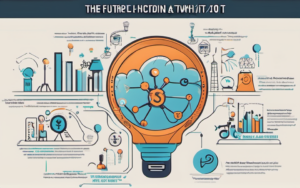The digital world has become an integral part of our lives, offering convenience, connectivity, and endless possibilities. However, with the rapid advancement of emerging technologies, a crucial question arises: is digital privacy at risk? The answer, unfortunately, is complex and multifaceted. While these technologies hold immense potential for innovation and progress, they also pose significant challenges to our privacy and data security.
The Evolving Landscape of Digital Privacy
The Rise of Emerging Technologies
The digital landscape is constantly evolving, driven by the emergence of groundbreaking technologies. Artificial intelligence (AI), the Internet of Things (IoT), blockchain, and facial recognition are reshaping industries and transforming our daily lives. These advancements offer numerous benefits, but they also come with unforeseen consequences for our digital privacy.
Data Collection and Privacy Concerns
These emerging technologies often rely on vast amounts of data to function effectively. This data collection can range from our online activities and browsing history to biometric information and location data. The sheer volume and sensitivity of this data raise serious concerns about privacy violations, potential misuse, and the erosion of individual autonomy.
Artificial Intelligence and Privacy
AI-Powered Surveillance
AI algorithms are increasingly used in surveillance systems, enabling the automated monitoring and analysis of large datasets. This can lead to increased government surveillance, potentially infringing on individuals’ privacy and freedom.
Facial Recognition and Biometric Data
Facial recognition technology, powered by AI, can identify individuals from images or videos. While it has applications in security and law enforcement, its potential for misuse, such as mass surveillance or unauthorized identification, raises serious ethical and privacy concerns.
Data Bias and Discrimination
AI systems are trained on vast datasets, which can reflect existing societal biases. This can lead to discriminatory outcomes, particularly when used in areas like hiring, loan approvals, or law enforcement.
Internet of Things (IoT) and Privacy
Connected Devices and Data Collection
The rise of the IoT has led to a proliferation of connected devices, from smart home appliances to wearable fitness trackers. These devices collect data about our habits, preferences, and even our health, raising questions about data security and privacy.
Security Vulnerabilities and Data Breaches
IoT devices often lack robust security measures, making them vulnerable to hacking and data breaches. This can expose sensitive personal information to unauthorized access, leading to identity theft, financial fraud, and other privacy violations.
Privacy Implications of Smart Homes and Cities
Smart homes and smart cities utilize interconnected devices to collect and analyze data about residents and their environments. While these technologies offer convenience and efficiency, they also raise privacy concerns about data sharing, surveillance, and potential government control.
Blockchain and Privacy
Decentralized Data Storage and Transparency
Blockchain technology offers a decentralized and secure way to store and manage data. This transparency can enhance privacy by reducing the risk of data breaches and unauthorized access.
Potential for Enhanced Privacy Control
Blockchain can empower individuals with greater control over their data, allowing them to choose how and with whom it is shared. This can foster a more privacy-centric online environment.
Challenges and Limitations
While blockchain holds promise for privacy enhancement, it also presents challenges. The technology can be complex and difficult to implement, and its effectiveness depends on the design and implementation of specific applications.
Protecting Digital Privacy in the Age of Emerging Technologies
Data Minimization and Purpose Limitation
Individuals and organizations should only collect and store data that is absolutely necessary for their intended purpose. Limiting data collection reduces the risk of misuse and minimizes potential privacy violations.
Encryption and Anonymization
Encryption can protect data from unauthorized access, while anonymization techniques can remove identifying information from datasets. These measures can help safeguard privacy while enabling the use of data for research and other legitimate purposes.
Privacy-Preserving Technologies
Researchers are developing privacy-preserving technologies that allow data analysis without compromising individual privacy. These technologies, such as differential privacy and homomorphic encryption, hold significant potential for protecting data while enabling valuable insights.
Regulation and Legislation
Governments and regulatory bodies play a crucial role in protecting digital privacy. Clear and comprehensive data protection laws, such as the General Data Protection Regulation (GDPR) in Europe, are essential for setting standards and enforcing accountability.
Navigating the Future of Digital Privacy
Balancing innovation and privacy is a complex challenge, requiring a collaborative effort from individuals, businesses, and governments. Informed consent and data control are crucial for empowering individuals and ensuring responsible data practices. We must actively engage in the discussion and advocate for policies that protect our digital privacy, ensuring that the benefits of emerging technologies are realized while safeguarding our fundamental rights.




